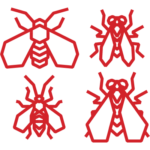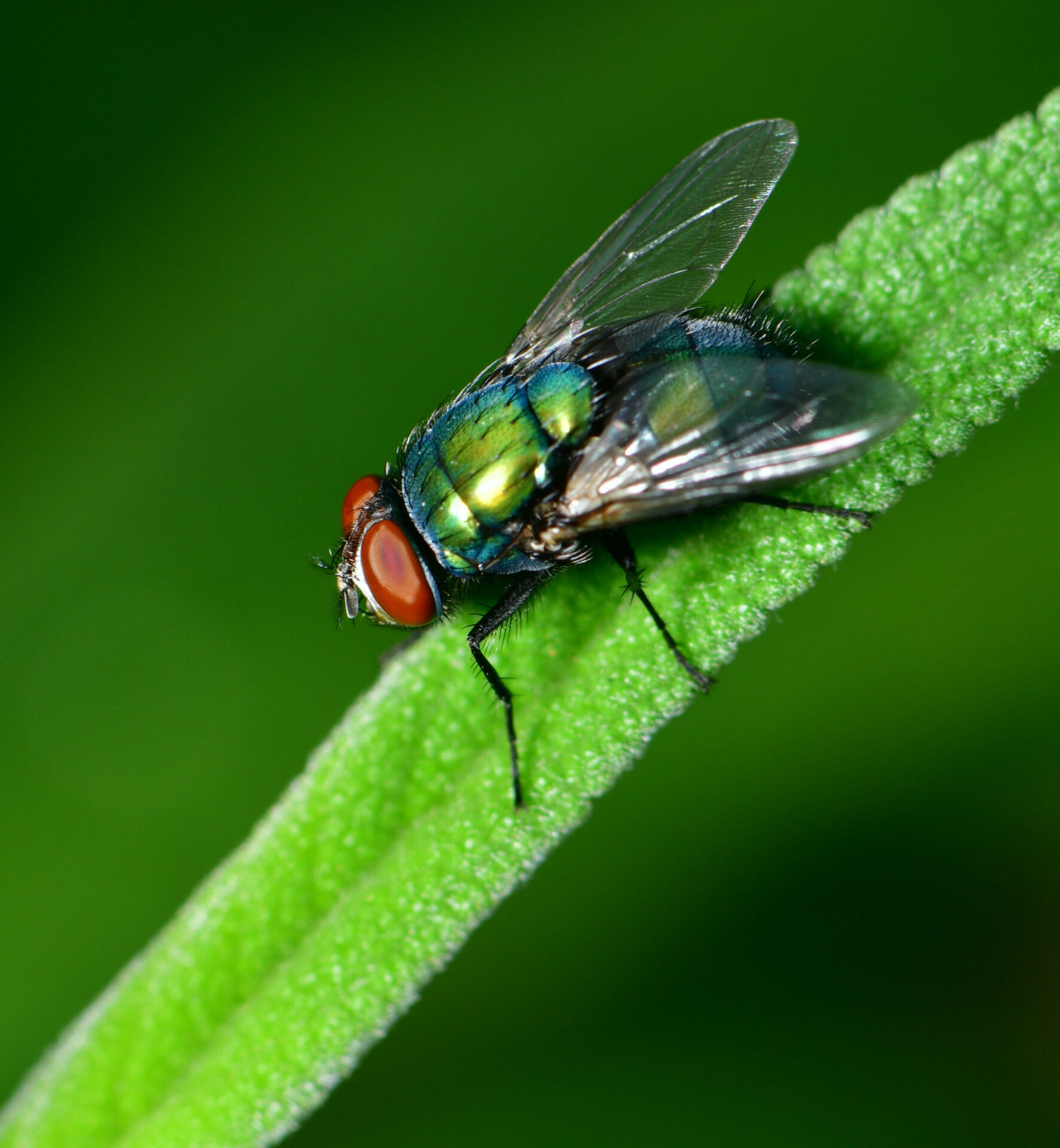Dodson Fly Treatment
At Dodson Pest Control, we’re prepared and well-equipped to handle any type of fly infestation. To schedule a FREE inspection, contact us today!
Commercial and Residential Pest Control Services | Dodson Bros. Exterminating Co., Inc.
Flies are annoying. They appear seemingly out of nowhere, buzz around looking for food, and somehow always seem to avoid flyswatters. They also pose health risks due to the number of disease-causing microbes that they carry and transmit onto surfaces and food. Some will even attack and bite humans or pets.
It’s not always easy to get rid of flies, especially if you’re not sure where the infestation is coming from. Fortunately, they’re not hard to identify, and they don’t generally try to hide. Also, it is typically affordable to get rid of them once you do find their source. That said, because of their ability to reproduce quickly, it’s best to get rid of flies when you notice their presence and do what you can to prevent an infestation.
For more information on flies, please visit the links below.
Flies are frustrating to deal with, especially during the warmer months and with how long some species can live. Watch this video to learn more about fly pest control and how to get rid of flies in your home.

Flies can usually be divided into two groups: “small” flies and “large” flies. There are several species of flies within these categories. Some questions we can answer to help you identify flies include:

Flies are attracted to filth and waste, which makes infestations fairly common. Some questions we can answer to help you discover what could be causing a fly infestation include:

There are multiple ways to treat your property for flies, especially if you’ve found their source. Some questions we can answer to help you determine the best options for fly treatment include:

Fly problems are usually fairly easy to prevent, especially if you’re keeping up with property maintenance. Some questions we can answer to help you prevent a fly infestation include:
Houseflies, which are the most common kind of pest fly, are known to reproduce quickly and in great numbers. They are also known to enter homes through open doors and windows or by riding on food items like produce.
Flies start life as tiny eggs that resemble rice, laid by an adult female on garbage, food or feces. They then hatch into larvae, or maggots, which resemble tiny worms and are about ¼-⅜ inch long. Maggots feed in the area where they hatched until they finish the process of growing into pupae, when they develop wings, legs and hard outer shells and begin to look more like adults. From there, they grow into adult flies and begin the cycle all over again. The entire growing period of a fly often lasts about a week, and once a fly is fully-grown, it can easily access any home that doesn’t have preventative pest measures in place.
The length of a fly’s life depends on what kind it is. Houseflies usually live about 15-25 days as adults.
There are a couple of signs that could signal a fly infestation. The most obvious is seeing flies around the house in a greater number than usual or groups congregating in a certain area. Another sign is finding a nesting site where eggs have been laid or larvae are feeding. Finally, you may hear them buzzing around before you even see them.
Most flies do not bite. Flies eat by using their spongy mouthparts and saliva to dissolve food and suck it up. The main kind of fly that bites is the horsefly, a large insect that bites mammals and is known for attacking moving, dark-colored targets.
While most flies do not bite and therefore are not harmful to the surface skin, they can carry a lot of diseases. This is a result of them feeding on everything from garbage to fecal matter to rotting produce. In the various places where they find their food, they pick up numerous pathogens that they then carry around with them, such as salmonellosis, typhoid and tuberculosis. They contaminate food and eating surfaces when they land on them, so if you find that flies have landed en masse on a particular item of food, it’s probably best to throw that food away. If you believe you’ve seen spotted lanternflies around your home, check out our blog to learn all about spotted lanternflies and how to remove the invasive species.
Preventative measures are the best way to avoid a fly problem. Here are a few measures you can take:
However, if you’re dealing with a large infestation, it’s best to call the professionals. Contact Dodson Pest Control for a free inspection today!
If allowed to stay in one place, flies can pose a number of dangers in a household or business. Some of these dangers include:

At Dodson Pest Control, we’re prepared and well-equipped to handle any type of fly infestation. To schedule a FREE inspection, contact us today!
If you want to get rid of a fly infestation, it’s good to know where they lay their eggs so you can take preventative measures against them.
It feels like a nightmare when you have large flies in your house all of a sudden in the summer. Learn more on what to know about larger flies here!
Fly pest control can be difficult if you don't have all the facts. Check out our Fly FAQ page and save it for future reference when dealing with flies in your home!